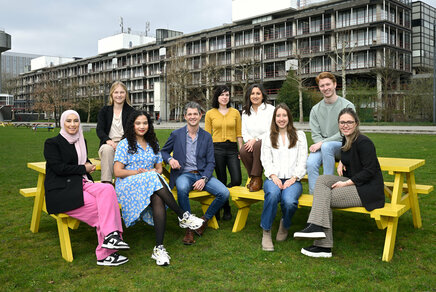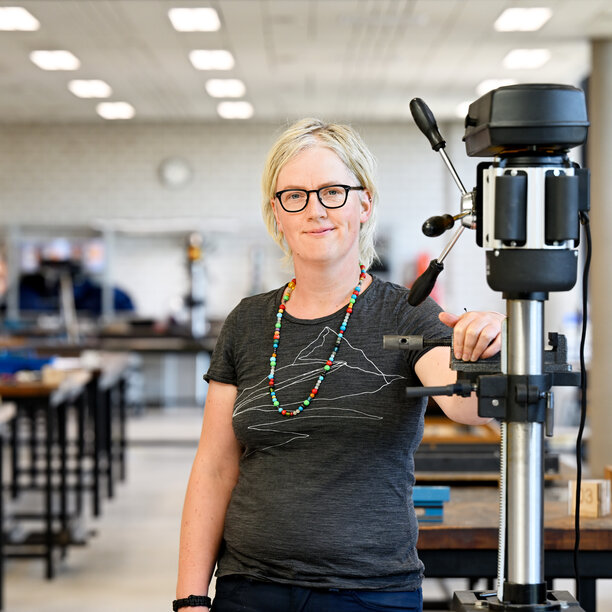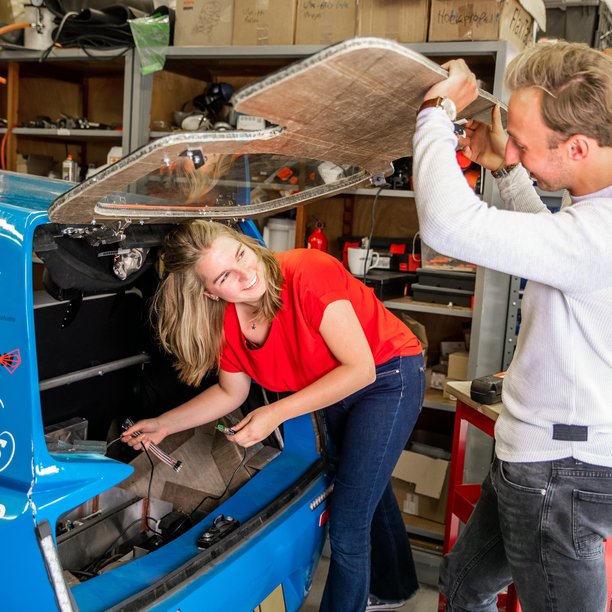‘Lecturers immerse themselves in the same things they expect of students’
Specially for lecturers and teaching assistants within 4TU, TU/e's own HRM/TEACH is offering a new two-day course, starting November 2022: Challenge-based Learning on Entrepreneurship (CBL/e).
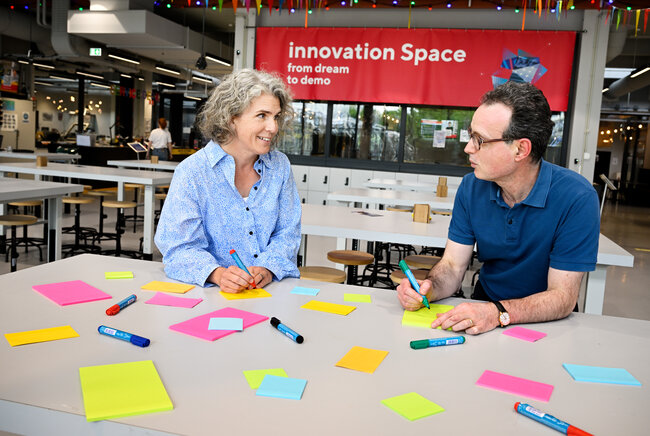
Challenge-based Learning. Entrepreneurship. Sound bites playing a significant role in today's university education. For students, being spoon-fed knowledge is one thing, but doing it for themselves in multidisciplinary teams is where learning is really at. This is what makes broad, entrepreneurial professionals of them. As a lecturer, how can you best facilitate this Challenge-based Learning (CBL)? The new two-day course Challenge-based Learning on Entrepreneurship offers footholds and insights. Trainer Gert Guri, TEACH teacher education specialist Suzanne Jacobs and skills teacher Miriam Willems explain.
“If we are expecting students to learn in a challenge-based way and to adopt a basic attitude of entrepreneurship, then naturally lecturers must be able to facilitate their learning. So how do you go about doing this? An important aspect, one still problematic for students, is this: how as a lecturer can you best provide encouragement and support? During the course, within a group of lecturers, you will tackle these questions,” tells teacher education specialist Suzanne Jacobs. She believes the power of the course comes from lecturers experiencing for themselves how CBL works and engaging together in reflection.
In her role as teacher education specialist at TEACH, Jacobs has been involved in developing and embedding the course in the range of training available to lecturers at the Netherlands' four universities of technology, known collectively as 4TU. Moreover, at the start of the year during one of the pilot rounds, she took the course herself.
You step, as it were, into the shoes of a student.
Teacher education specialist Suzanne Jacobs
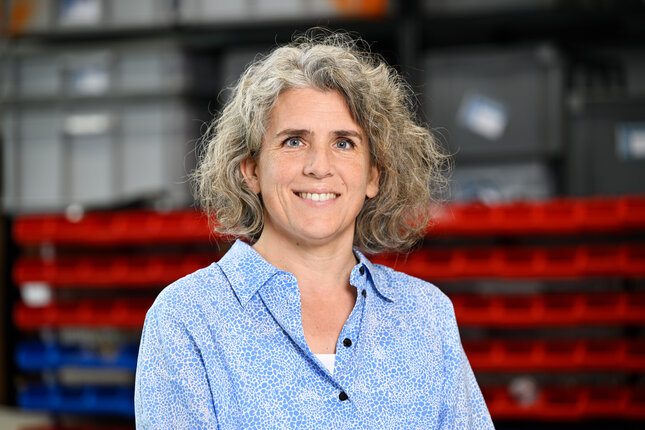
“The nice thing about it is that the participants work together in the same way as students experiencing Challenge-based Learning,” continues Jacobs. “They are set a challenge they have to solve. This means they immerse themselves in the same things they ask of their students, and they draw on skills that we expect from students. They experience what this form of education is like and discover what it means for the individual: uncertainty, having to work on an open-ended assignment, tapping into creativity. Not everything succeeds immediately, but that's okay. Right first time is not the motto, rather the emphasis is on learning together and learning a great deal in that way. As a lecturer, it is beneficial to experience this process for yourself sometime. You step, as it were, into a the shoes of a student.”
Day two of the course is all about reflection. Jacobs: “A half-day later, the participants look back on their assignment and the methodologies and tools they have been introduced to. You learn a lot from reflecting, and as a lecturer this is another skill well worth brushing up.”
Experienced trainers
Gert Guri and Ákos Wetters are the trainers on the CBL/e course. Both are experienced CBL teachers and coaches on the master's course innovation Space Project, and elsewhere. Guri is the Coordinator of Education on Entrepreneurial Learning, a lecturer at Industrial Engineering, and a significant driving force behind the course. Ask him about Challenge-based Learning and entrepreneurship, and he could talk forever.
Having entrepreneurial skills makes students stronger and they are able to reinvent themselves time and again.
Gert Guri, trainer CBL/e
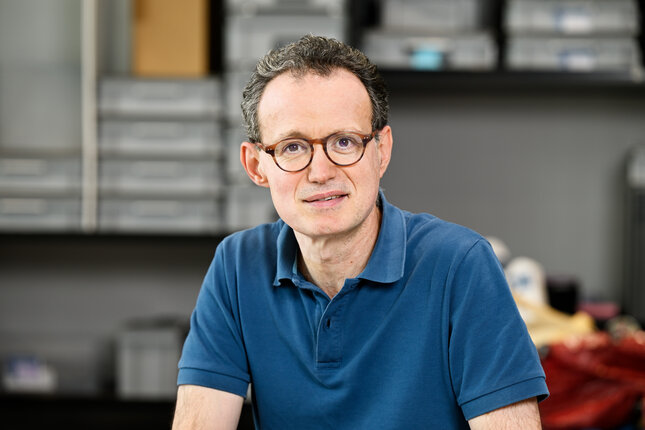
“In today's world we need more and more students with entrepreneurial skills,” says Guri. “I don't mean entrepreneurial in the traditional sense of the word; we aren't expecting every student to found a start-up after graduating. This is more about the broader sense, about developing an entrepreneurial mindset.
In the world of work, our students find themselves in multidisciplinary and multicultural teams. In these teams you are expected to come up with a technical solution and to look beyond that focus. You may well conceive a fabulous technical solution for a problem, but if that solution costs fifteen million, is not sustainable or legally watertight, it's not going to fly.
What matters is that you take into account all kinds of other important aspects. A solution, an idea has to be technically sound, deliver the desired result, win social acceptance, and be legally robust. Above all, you want your solution to make a real difference. Raise the quality of life, say, or contribute toward sustainability.
To achieve this, you must be able to think broadly, beyond your own technical solution. You have to be able to communicate clearly and well, to pitch, persuade, unite various stakeholders. You have to learn not to be an engineer, in fact. You have to leave your comfort zone. In short, you need entrepreneurial skills. And these are what we aim to teach our students. Having these skills makes them stronger and they are able to reinvent themselves time and time again.”
The acquisition of entrepreneurship within the curriculum also suits today's students well, Guri knows. “Often, students are already thinking about more than just their technical solution. They are by nature innovative and want to take their technical solution further. They want to use their technical knowledge to contribute to societal issues and want to make an impact.”
Train the teacher
So entrepreneurship is something fundamental that we must teach our students, and in which we need to train them, believes Guri. Every day, with bags of enthusiasm, he does this work, and he is keen to use the CBL/e course to get other lecturers on board, thinking about how they best do this themselves.
“Think of it as a train-the-teacher program. We introduce lecturers to our experience and share our tips, tools and tricks. They try it for themselves, in the same way that students do on Challenge-based Learning pathways. We have a wealth of knowledge to share. About how to choose a challenge, for example, how to have the students form teams, how teams work and how you can best support them, which tools and teaching methods you can use. This is how we familiarize lecturers with CBL and entrepreneurship.
“After the two-day course we remain available to participants. They can contact us with any questions they have about their own lessons or student projects, and they can come and watch us at work, see how we approach CBL.”
From zero to hero
In any event, for Guri it is a fantastic experience, teaching entrepreneurship to students and coaching them within, for example, innovation Space Projects. “They keep on surprising me. Over a number of weeks they change from zeros to heroes in this respect. They give it their all and develop so much, I get a huge amount of satisfaction. I hope that a lot of lecturers take the CBL/e course, and I am convinced that with this course we are contributing toward implementing our education vision for 2030.”
Positive reactions
The responses of the more than thirty lecturers who took part in the course pilots at the start of the year are promising and positive, Jacobs knows. And so the course has now been included among the range of courses offered by TEACH. “In particular, working together and learning from and with each other's talents are popular aspects. It's okay to make mistakes; what matters most are discovery and reflection. The atmosphere is positive. And every time, the training is a little bit different, depending on the participants' backgrounds.”
Connections are made between lecturers from every corner of the organization - and between different universities - who otherwise may never have met.
Teacher education specialist Suzanne Jacobs
A nice extra achieved by the course is the contacts that arise between lecturers, and how these are followed up, tells Jacobs. “Connections are made between lecturers from every corner of the organization - and between the various universities of technology - who otherwise may never have met. Not only do they learn with one another during the course, they find each other afterwards. It's great to see that happening.”
Like to know more about CBL/e?
The course Challenge-based Learning on Entrepreneurship (CBL/e) will be held at TU/e in November 2022, and again in February, April and June 2023. Participation is free for lecturers and teaching assistants working within 4TU.
More on our strategy

![[Translate to English:] [Translate to English:]](https://assets.w3.tue.nl/w/fileadmin/_processed_/c/f/csm_BvOF_2024_0319_AEV_license_TUe_Dirk_van_Meer_-_CORE_1__c976e259a5.jpg)
